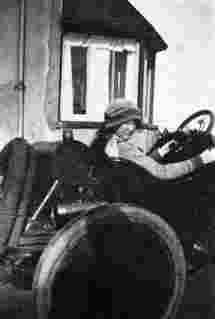
| Home | Lineage and Birth | The early years. | Conrad the Mountee. | 23rd of August 1914 | Captivity Espionage and Escapes | Augustabad | Barry Bingham VC | Conrad meets M | Conrad Assistant Military Atache. | The ffrench Connection | The Last Tigerhunt. | The Archaeology of the Reich | From Intrigue and artifice to Art. | The names Ffrench, Conrad Ffrench. | Ian Fleming | The Black Ore of Death | An Evil Medium | Off the Chessboard. | Arbutus Point. | Conrad retires to the field | The Art of Conrad O'Brien-ffrench | The Quotient of Conjecture. | News and Gossip | Bookshop & Bibliography | Mailbag | Related Links | Contact Me | ||||||||||||||
|
Conrad Fulke O'Brien-ffrench. Artist and Spy. |
||||||||||||||
|
Off the Chessboard.
|
||||||||||||||
|
|
||||||||||||||
|
It was
March 1938, and in Kitzbühel Conrad’s daughter, Christina, now three, was
visiting. She was being looked after by Theresa, his Tyrolese Tours manager.
Conrad was fully occupied with his intelligence work. The political climate was
grim. Troops were gathering at the border. On Thursday 10 March, a contact at
the border sent a typed report that two columns of German troops were
approaching from Bad Toltz and Conrad was
the first to break the news of the invasion to the West. But the Gestapo were
listening at the exchange. Conrad knew immediately his cover was blown. It was
time to leave. As he left the shop owned by a local contact where he had taken
the call, he ran into Rudolfo. For once it was Conrad who bore news. In an hour
it was all over Kitzbühel. The Germans were coming. He saw Chappy Silern and Louis de Rothschild, hurrying to the station later that
evening. They repeated his words to Rudolfo verbatim. Conrad had much to do.
All traces and documentation which might compromise his operatives had to be
destroyed and parting messages quickly sent. Most had already fled or been
arrested as anti Nazis. He put Christina and Theresa on the Nevertheless,
Conrad had escaped unscathed and was soon back in Conrad had
covered his tracks well and left no incriminating evidence in Kitzbühel.
Following the panic of the invasion, things had settled down. It was relatively
safe to return. He gathered his possessions then set out for Rudolfo’s home in
his Ford V8 sports car. He booked into a small inn in a nearby village and then
went on to the Gerlach residence. Rudolfo had information as to Hitler’s plans
towards
|
||||||||||||||
|
|
||||||||||||||
|
Enter supporting content here
|
||||||||||||||



